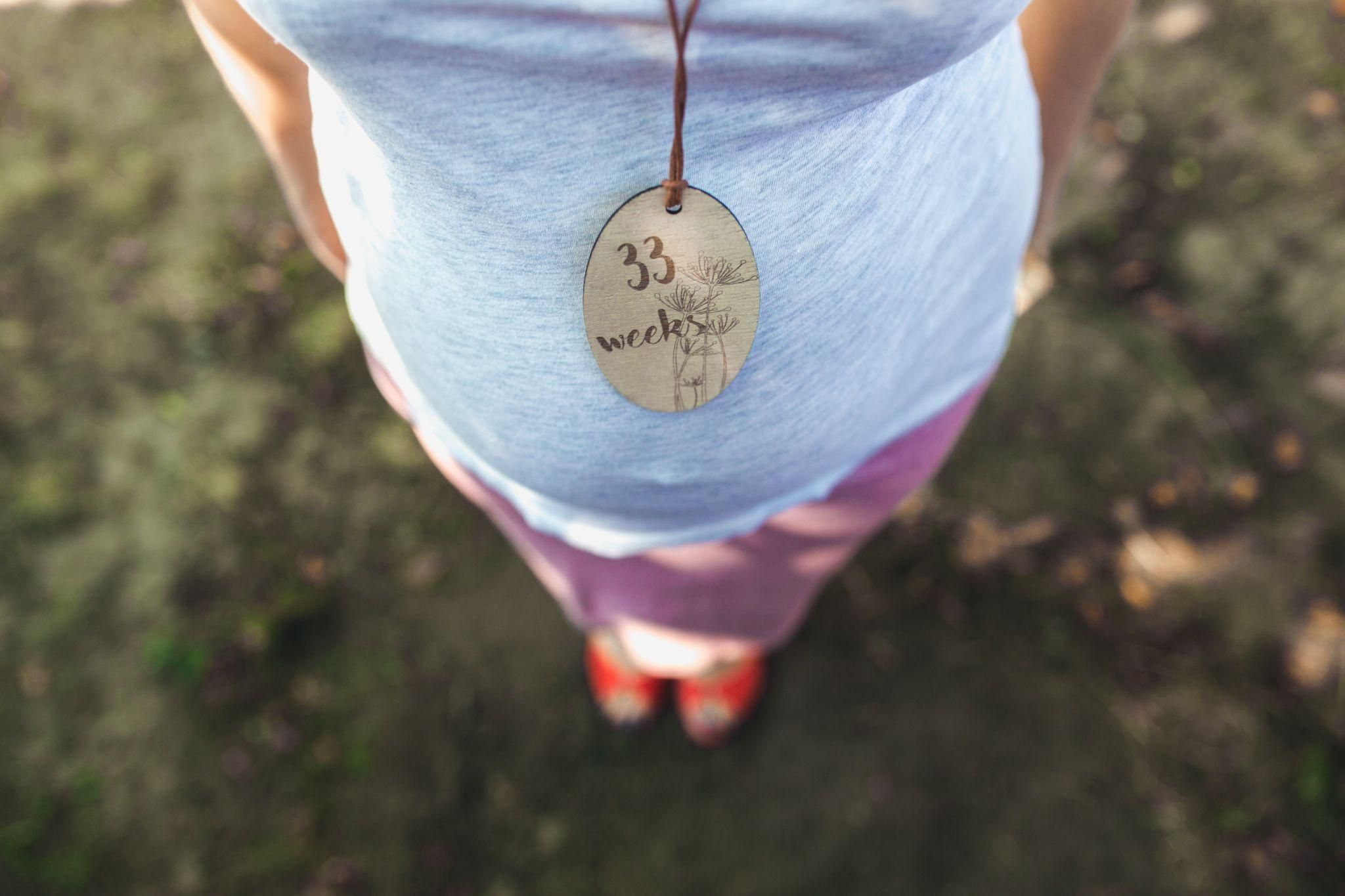As you reach 29 weeks pregnant, you are well into the third trimester. This is an exciting and busy time as you prepare for your baby’s arrival. Staying on top of your antenatal appointments and taking care of your body is key. This stage of pregnancy comes with noticeable changes, both for you and your baby, as you move closer to labour and delivery.
In this article, we will cover what to expect at 29 weeks, how your baby is developing, and how you can look after yourself. We’ll also delve into the benefits of antenatal yoga, prenatal massage, and attending antenatal classes.
Your Baby’s Development at 29 Weeks
By 29 weeks, your baby has grown significantly and now weighs around 1.1 to 1.2 kg and measures about 39 cm from head to heel. Their organs, bones, and systems continue to develop as they prepare for life outside the womb.
Key Developments at 29 Weeks:
Brain Development: Your baby’s brain is growing rapidly, and the surface of the brain is becoming more wrinkled. These wrinkles, known as gyri and sulci, increase the surface area and capacity of the brain.
Lung Maturity: While your baby’s lungs are still maturing, they are continuing to produce surfactant, a substance that helps the lungs expand after birth. If your baby were born prematurely, this would be a vital development.
Sensory Development: Your baby’s senses are becoming more refined. They can now react to light, sound, and touch, and their eyes may even move in response to light filtering through your abdomen.
Body Fat: Your baby is building up layers of fat under the skin, which helps with regulating body temperature after birth. This will continue over the next few weeks.
For more details about your baby’s development at 29 weeks, the NHS Pregnancy Week-by-Week Guide provides helpful information on what to expect.
Your Body at 29 Weeks
At this stage of pregnancy, you may start feeling more tired and uncomfortable as your body works hard to support your growing baby. There are several symptoms and physical changes that are common at 29 weeks, but it’s important to stay in touch with your antenatal clinic to ensure everything is progressing normally.
Common Symptoms at 29 Weeks:
Shortness of Breath: As your baby grows, your expanding uterus can press against your diaphragm, making it harder to take deep breaths. This is a common third-trimester symptom, but if it becomes severe, speak to your midwife during your next antenatal checkup.
Back Pain: Back pain is common in the third trimester as your body adjusts to your growing bump. To alleviate discomfort, consider gentle exercises such as antenatal yoga, which helps strengthen your back and improve posture.
Swollen Ankles and Feet: Swelling in your feet and ankles is common due to fluid retention. Keep your feet elevated when possible, stay hydrated, and try light exercise to improve circulation. More on third-trimester swelling from the NHS.
Braxton Hicks Contractions: These are practice contractions that help prepare your uterus for labour. They are usually mild and irregular, but if they become painful or regular, contact your midwife for advice.
Antenatal Care and Checkups at 29 Weeks
Around 29 weeks, you’ll start having more frequent antenatal appointments with your midwife or doctor. These visits are crucial for monitoring your health and the progress of your baby’s development.
Antenatal Checkup: What to Expect
Blood Pressure Check: High blood pressure can be a sign of preeclampsia, a pregnancy complication. Your midwife will check your blood pressure regularly to catch any early signs.
Urine Test: Urine samples are tested for protein, which can be another indicator of preeclampsia.
Fundal Height Measurement: The size of your bump will be measured to check that your baby is growing as expected.
Fetal Heartbeat: You’ll be able to hear your baby’s heartbeat at each visit, offering reassurance that your baby is doing well.
Discussion of Labour and Birth Preferences: As your due date gets closer, you’ll start discussing your birth plan, including pain relief options, birthing positions, and delivery preferences.
For more information on what to expect at your antenatal clinic visits, check the NHS guide to antenatal appointments.
Staying Active: Benefits of Antenatal Yoga
Staying active during your third trimester can help you manage discomfort and prepare your body for labour. Antenatal yoga is one of the most popular forms of exercise during pregnancy, and it offers several physical and mental health benefits.
Key Benefits of Antenatal Yoga:
Improves Flexibility and Strength: Prenatal yoga helps strengthen the muscles used during labour, especially in your back, abdomen, and pelvic area.
Breathing Techniques: Yoga promotes mindfulness and teaches breathing techniques that can be useful during labour to manage contractions.
Reduces Stress and Anxiety: Practising yoga can reduce anxiety and stress, promoting relaxation during pregnancy.
Relieves Back and Hip Pain: Yoga stretches can help relieve the back pain and hip discomfort often experienced during the third trimester.
Many gyms and studios offer pregnancy yoga classes tailored to expectant mothers. To find antenatal fitness options near you, visit the NHS pregnancy exercise guide.
Relaxation and Self-Care: The Benefits of Antenatal Massage
Taking time to relax is important, especially in the later stages of pregnancy. Antenatal massage is an excellent way to manage stress, relieve muscle tension, and prepare your body for labour.
Benefits of Antenatal Massage:
Alleviates Aches and Pains: A prenatal massage can ease the tension in your back, hips, and shoulders caused by your growing bump.
Reduces Stress: Regular massage sessions can reduce stress hormones and promote a sense of calm.
Improves Circulation: Massage can improve circulation and help reduce swelling in the legs and feet, which is common in the third trimester.
If you’re interested in prenatal massage, ensure you visit a therapist who is specially trained in massage for pregnancy to ensure the treatment is safe. You can also check with your antenatal clinic for recommendations or visit The Massage Training Institute to find certified practitioners near you.
Antenatal Classes and Preparing for Labour
By 29 weeks, many expectant parents begin attending antenatal classes. These classes cover everything from the stages of labour to breastfeeding and caring for your newborn. They can help you feel more prepared and confident as you approach your due date.
What You’ll Learn in Antenatal Classes:
Labour and Delivery Stages: You’ll learn about the different stages of labour, what to expect during each stage, and how to manage contractions.
Pain Relief Options: Classes often discuss various pain management options, from breathing exercises and yoga for pregnancy to medical interventions like epidurals.
Breastfeeding and Newborn Care: Many classes also cover the basics of breastfeeding and caring for your newborn in the first few weeks.
To find antenatal classes near you, use the NHS Choices tool to search for options in your area.
Looking Ahead: Preparing for the 32-Week Antenatal Appointment
At 29 weeks, you’re getting closer to your next key antenatal checkup at 32 weeks. This appointment will involve similar checks to monitor your baby’s growth and your well-being. At this stage, you might also be offered an antenatal scan to check your baby’s position and progress.
What to Expect at 32 Weeks:
A full physical exam and monitoring of your baby’s heartbeat.
A discussion of your birth preferences and plan.
A review of your overall health, including blood pressure and weight checks.
It’s also a good time to tour your local maternity unit or antenatal clinic to familiarise yourself with the facilities where you plan to give birth. If you’re considering private care, Private Healthcare UK offers information on private maternity services.
Conclusion
At 29 weeks pregnant, your body and baby are both going through significant changes. Keeping up with your antenatal appointments, attending antenatal yoga or pregnancy fitness classes, and taking time for self-care, such as prenatal massage, are all important steps in ensuring a healthy and smooth pregnancy. As you prepare for the final stretch, don’t forget to start thinking about your birth plan and what to expect in the upcoming weeks.
For more information on antenatal care and preparing for labour, visit the NHS Pregnancy Hub](https://www.nhs.uk/pregnancy/)) or speak to your healthcare provider.
References
- The Ultimate Antenatal Classes
Prepare for labour, birth, and baby care with nine experts, including senior NHS midwives and an award-winning obstetrician!
https://unii.com/en/journey/ultimate-antenatal-classes









